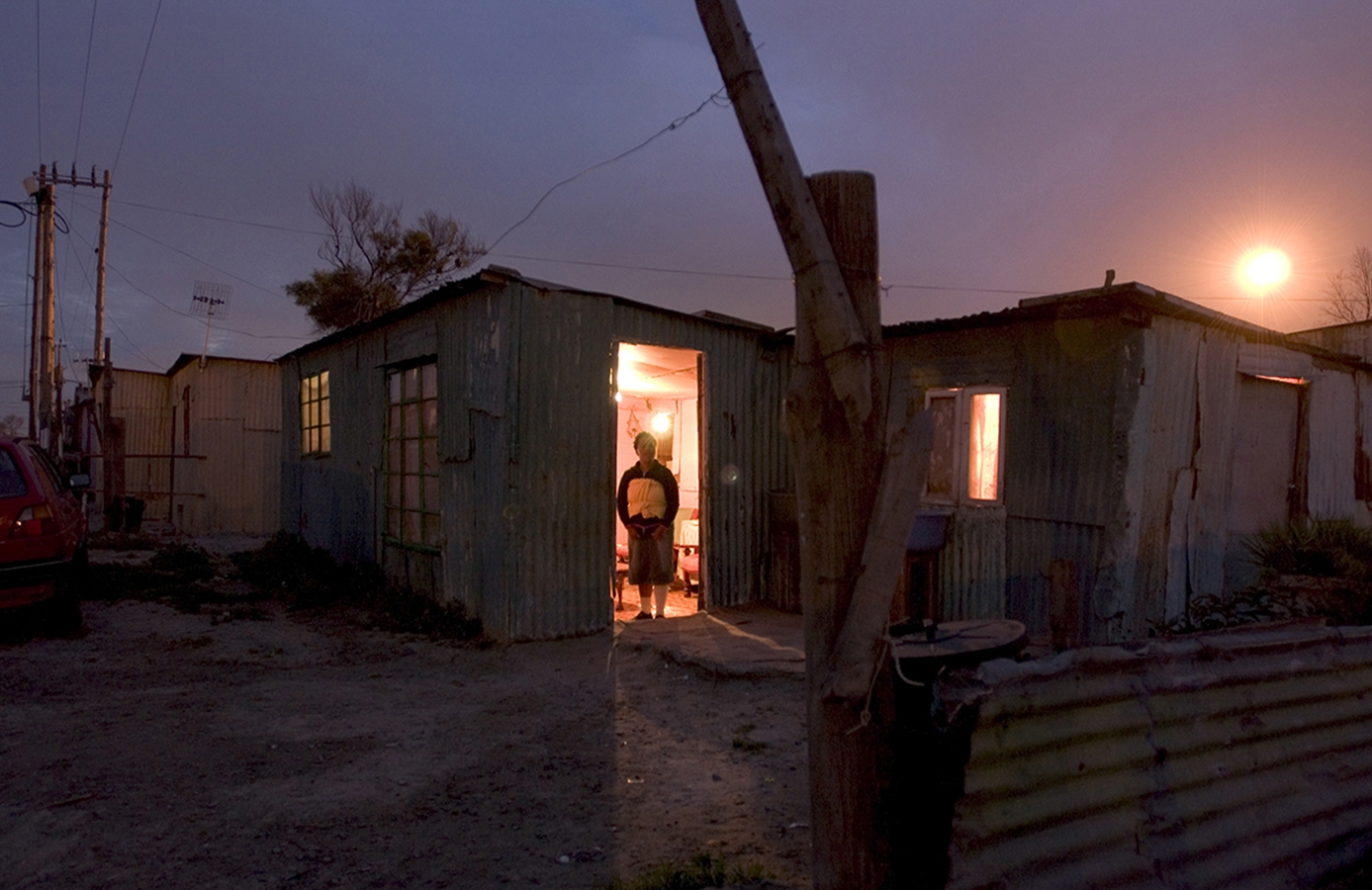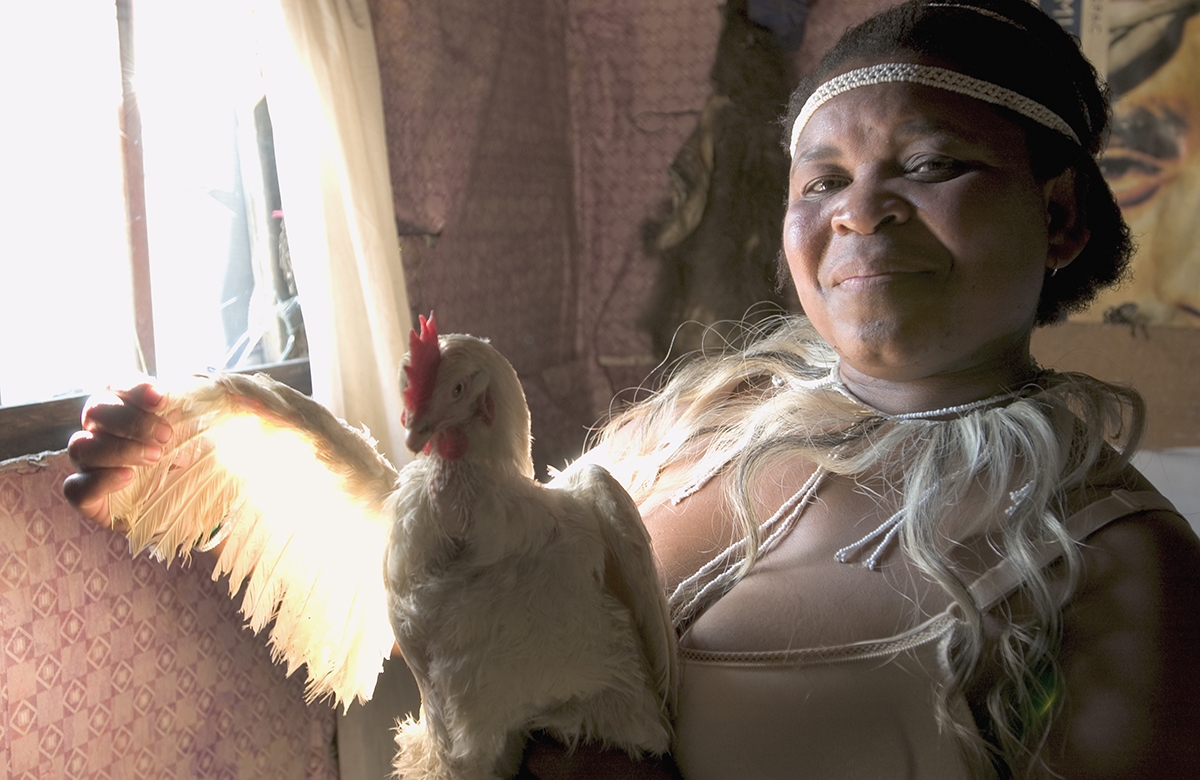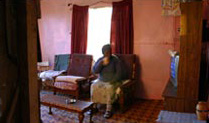
INQUIRY
How are women and girls constrained by violence and income inequality?
INSPIRATION
I moved to Cape Town in 2003 with my husband and radio producer, Joe Richman, to document life after apartheid for NPR. Interviewing activists, politicians and historians was a master class in South African history. And compassion. I was curious about the lives of ordinary citizens, especially women, whose opportunities were still defined by the legacy of apartheid. I started spending time in Khayalitsha, the largest township outside of Cape Town where I met Momtolo, a domestic worker and matriarch of a large family. I began a year-long collaboration with her. Every week, I returned with photographs of her family, neighbors and community. At the end of the year, we held an informal exhibition on the clothes line in her yard. It was one of the most satisfying projects I've ever done. I began training local photographers using this model. In 2005, photographer Alistair Berg and I founded Iliso Labantu (Eye of the People) to assist township-based photographers in documenting their own communities and selling their work. Since 2007, Iliso Labantu has trained more than 40 photographers, many of whom have gone on to have international careers.
THE WORK
CO-PRODUCER/MANDELA: AN AUDIO HISTORY
A five-part radio documentary about the struggle against apartheid told through intimate first-person accounts of Nelson Mandela himself, as well as those who fought with him, and against him. Produced in collaboration with Radio Diaries and broadcast on NPR, BBC, SABC, CBC. Winner Columbia-duPont Award. 2004.
CO-FOUNDER, ILISO LABANTU PHOTO COLLECTIVE
In 2005, photographer Alistair Berg and I teamed up to help train township-based photographers. The group has met regularly to share work and to participate in “Flash Photo” weekends. From sun up on Friday to sundown on Saturday, we fan out across a particular neighborhood and, for 48 hours, photograph in homes, shops, and on the streets. Editors on-site help photographers refine their stories and then install the work in the community.
Members have exhibited work in Germany, Scotland, China, San Francisco, and the UK and are recipients of numerous awards including the Magnum Foundaiton. Iliso Labantu is supported by the Open Society Foundation.
TEN YEARS ON:
"How are things in South Africa?" After living and working there for more than 15 years, my answer can go either way: I can be bullish thinking of the office towers, the new city buses, and the success of the World Cup. Or, I can disparage the endless sprawl of shacks, the crime, the lack of trained teachers and the seemingly intractable unemployment.
But there are less tangible measures to chart the country's progress. Stories that can't be plotted on a graph, that are not linear and unfold slowly.
More than one million residents in Khayalitsha live in dense rows of shacks and, increasingly, brick houses. Momtolo and her family are among them. When I met her 10 years ago she was working as a house keeper earning $10 a day.
I visited her neighborhood regularly in 2004. Every week I brought back a stack of pictures and we would walk through the neighborhood passing them out and making new photographs. She translated for me, introduced me to everyone, and pointed out details I missed. In another life, she would have made a great journalist.
This year I went back with a stack of pictures to find everyone and to to see what, if anything, has changed.
From the freeway, the sprawl of tin shacks and the columns of paraffin smoke looked familiar. But new taxis and cars clogged the streets. There was a shopping mall. Momtolo was living in a government-built brick house. But these weren't the biggest changes. It was in the small details of their lives that I noticed a shift in attitudes, a sense of opportunity and certainty. For the first time in 10 years, Momtolo had bought herself a new dress.
2004
2014







RECOGNITION
Mandela - Winner of Audie Audio Book of the Year, 2015, duPont-Columbia Journalism Award and JFK Journalism Award



